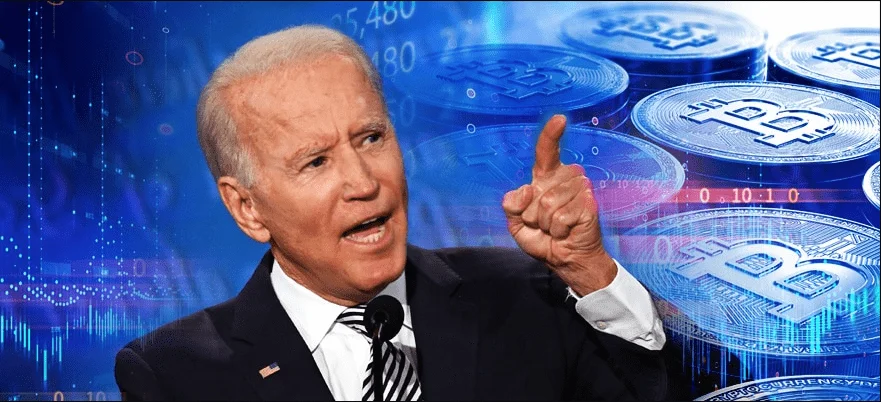The Biden Administration endorsed a tax amendment that appears to be directed at the DeFi industry.

In an unexpected move, the Biden Administration endorsed an amendment to a major Senate bill that would subject a large segment of the cryptocurrency industry to onerous or even impossible tax reporting requirements.
Senators Rob Portman (R-Ohio) and Mark Warner (D-Va) introduced the amendment, which would exempt validators and developers who worked on proof-of-work networks from tax reporting obligations—effectively favoring Bitcoin over other networks that use proof-of-stake and other consensus mechanisms.
The final fate of the pair of crypto amendments remains uncertain, as Sen. Lummis stated that the vote, which was originally scheduled for Thursday night, will now likely take place on Saturday.
While the delay provides the crypto industry with a brief window of opportunity to mobilize against the Portman amendment, the Biden endorsement—which was included in a White House statement—will make defeating it more difficult.
The Portman amendment, and the Biden Administration’s endorsement of it, caught the crypto industry off guard, which had been celebrating earlier on Thursday after an earlier amendment—proposed by Senators Ron Wyden (D-Or), Pat Toomey (R-Pa), and Cynthia Lummis (R-Wy)—appeared to be on the verge of passage.
Toomey’s proposal would have exempted a broad category of cryptocurrency miners and developers from being considered “brokers” responsible for reporting their customers’ tax obligations. Both proposed amendments are described in detail in this tweet.
Portman’s proposal to limit the exemption to proof-of-work projects is unpopular in the crypto industry, as many projects in the decentralized finance (DeFi) space do not, and frequently cannot, identify their customers, and thus making them subject to tax reporting could force them to close or leave the United States.
According to some, the Portman plan is a “attack on DeFi” while Wyden noted that it would harm the climate by favoring the most energy-intensive segment of cryptocurrency and would also harm innovation.
According to Ryan Selkis, founder of research firm Messari, crypto opponents within the United States government may be pursuing an even more cynical strategy.
Specifically, he asserted that their strategy is to cripple the industry by prohibiting proof-of-stake networks (such as Ethereum) on compliance grounds, and then attack Bitcoin via environmental policy:
Step 1: Ban PoS under the guise of “tax compliance”
Step 2: Ban PoW under the guise of “environmental compliance”
Clever, likely effective. Back to wartime unfortunately. These people make me sick. I’m going to bed.
— Ryan Selkis (@twobitidiot) August 6, 2021The crypto community was divided on Thursday, with many expressing displeasure or despair at the Portman amendment’s passage, while others pledged to challenge it in court if it is passed, or to work around it by incorporating small pieces of proof of work programming code into proof of stake projects.
A much larger process in the United States Senate is underway, with the goal of passing a bipartisan infrastructure bill in the next few days. The debate over the competing crypto amendments is part of that process.
The crypto industry will be impacted by the bill, even though it is focused on infrastructure projects such as roads and bridges.
This is due to a requirement that Congress explain how they will pay for various projects; in this case, the Senators have stated that they will raise $28 billion of the bill’s $550 billion price tag by collecting more tax from cryptocurrency.
As the debate over the crypto amendment nears its conclusion on Saturday, influential players in the cryptocurrency industry have already begun issuing statements warning of the ramifications of the Portman-Warner plan if it is implemented.
Among them is the venture capital firm Andreessen Horowtiz, which has made significant investments in the cryptocurrency industry:
“If the last-minute amendment to the Infrastructure Bill introduced by Senator Warner passes, it will be a stunning loss for America and our ability to remain the innovation epicenter of the world. The proposed amendment recklessly imposes an unworkable reporting requirement on the shoulders of software developers and proof-of-stake blockchain validators,”
— Andreessen Horowtiz 